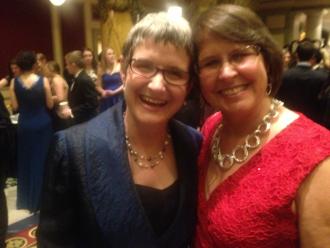Dean Smith’s story of survival and sisterhood
Contact: Jillian Fraze
October 30, 2025
While I waited for the doctor’s phone call with my breast cancer biopsy results, I numbly took in the scene of my anxious family. My husband, Lang, was busy talking to my sister, Cory, and her husband, Kevin. Beaumont, my precious 10-year old daughter, was playing with Cory’s kids, Coryelle and Jack. Friends were there. I was surrounded by loved ones, bracing for the news. Unfortunately, our past experiences had us prepared for not good news: Lang’s Aunt Francie had lost her life to breast cancer and Cory was a two-year survivor.
I received the positive diagnosis a little before 6pm, Wednesday, August 2, 2006. It seemed surreal for this to happening to me after supporting Cory through her diagnosis and treatments. Cory’s cancer had been stage 4 and had spread to her lymph nodes. For Cory, it had taken three operations to get all the cancer, moving from lumpectomies to a single mastectomy. Cory participated in an aggressive chemotherapy treatment trial that took its toll on everyone, and thankfully, saved her life.
Cory and I were both in our early forties when we were diagnosed. Because of my sister’s diagnosis, I qualified as high risk and able to start getting mammograms. My cancer showed up on my second mammogram. As I reflected on Cory’s journey and the similarities in our diagnoses, I looked into genetic testing for BRCA1 and 2. Even though it wasn’t covered by insurance, with my niece and daughter now in line, we made the decision to do the testing anyway. Because of Cory taking three surgeries to get clear margins, I was preparing for a mastectomy. The gene testing would inform whether I had a single or double mastectomy. I was negative for the mutated breast cancer genes and had the single mastectomy on August 21.
The next few weeks were a blur of pain, healing, and gratitude. My friends and family showed up in force, bringing in food, helping to make my bed, baby-sitting me and Beaumont so Lang could work, reading and napping with me, writing grants in my living room, and the list goes on. Beaumont was starting middle school and we shared with the administration and teachers what was happening. Her new math teacher made a point of checking in and talking with her, later becoming her math tutor through high school and lifelong supporter.
The fear came later through all of the ongoing doctor’s appointments and scans. I kept waiting to hear that they found something else, that I was not cancer free. I was fortunate to work in the Arnold School of Public Health, where colleagues supported my recovery and I found a club of others connected through their breast cancer diagnosis. Not all survive, like my friend, Olga Ogoussan, a medical doctor and international student from Benin who was working on her doctorate at the Arnold School. Olga’s cancer had come back, yet, she fought on traveling for treatments and advocating for breast cancer research until she died in 2010. Others, like me and Cory serve others as a ready ear and resource and raise awareness, like in this article and interview.
I don’t know why my sister and I both got breast cancer. To help others find answers, I participate in the Sister Study. We’ve speculated that it might have been from our environment, which could include something as mundane as exposure in your home to our more risky escapades playing in the formaldehyde saturated saw-dust pile, jumping into the silo of cotton seeds laced with pesticides and defoliants, or skiing in the lake adjacent to a toxic landfill. While we may not know why we get cancer, we can detect it as early as possible through mammograms and self-exams, which can save someone’s life, like me.


